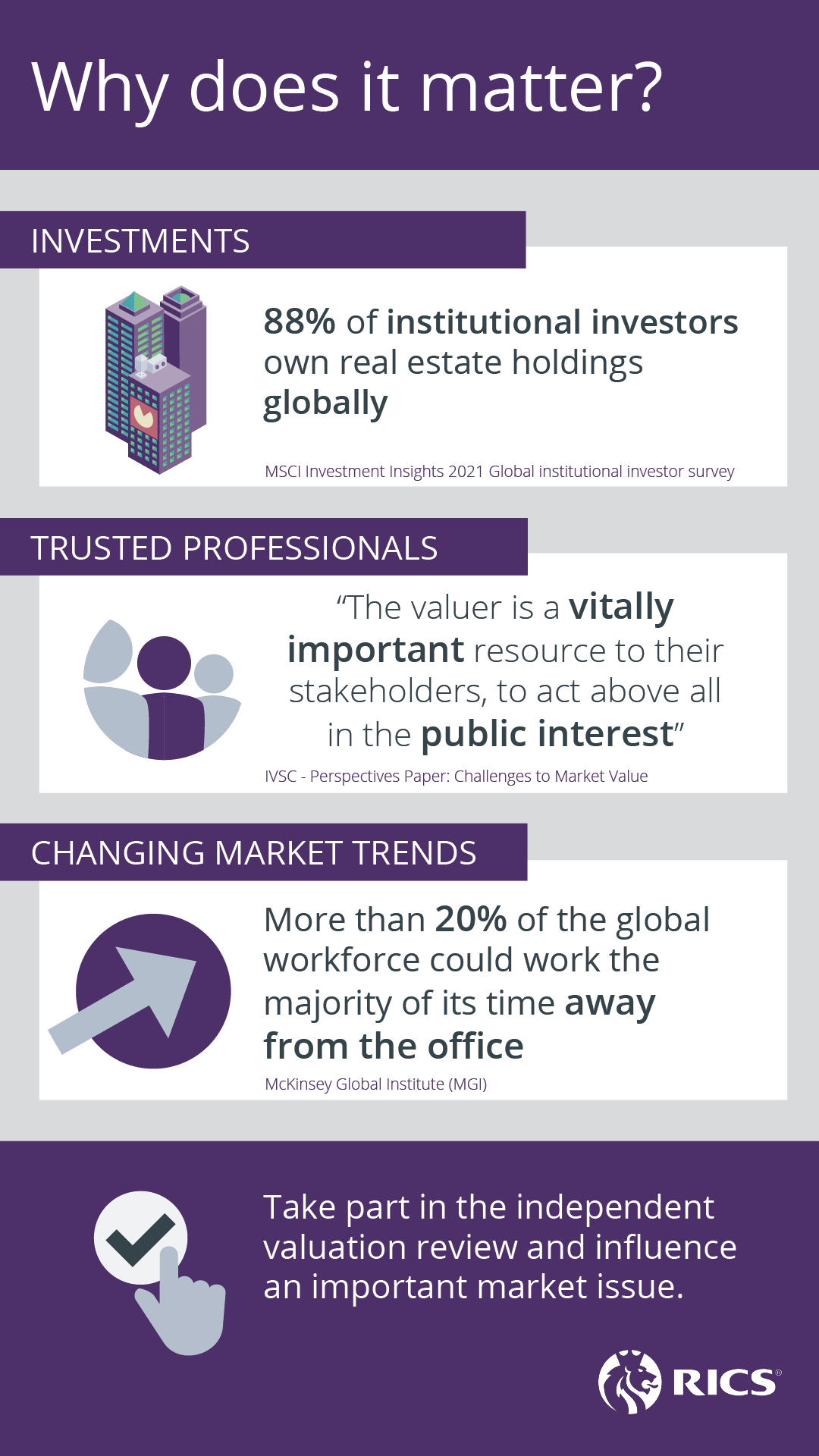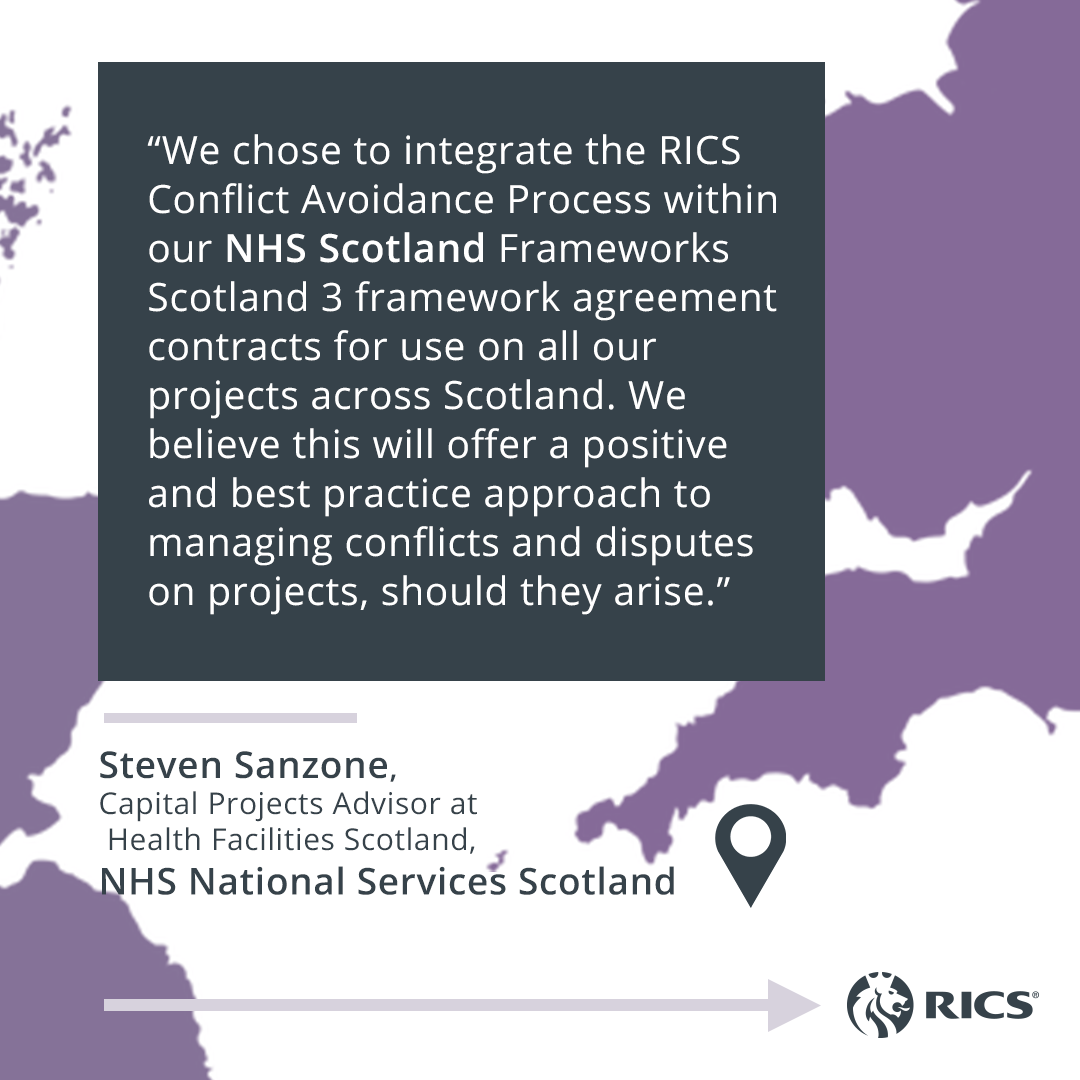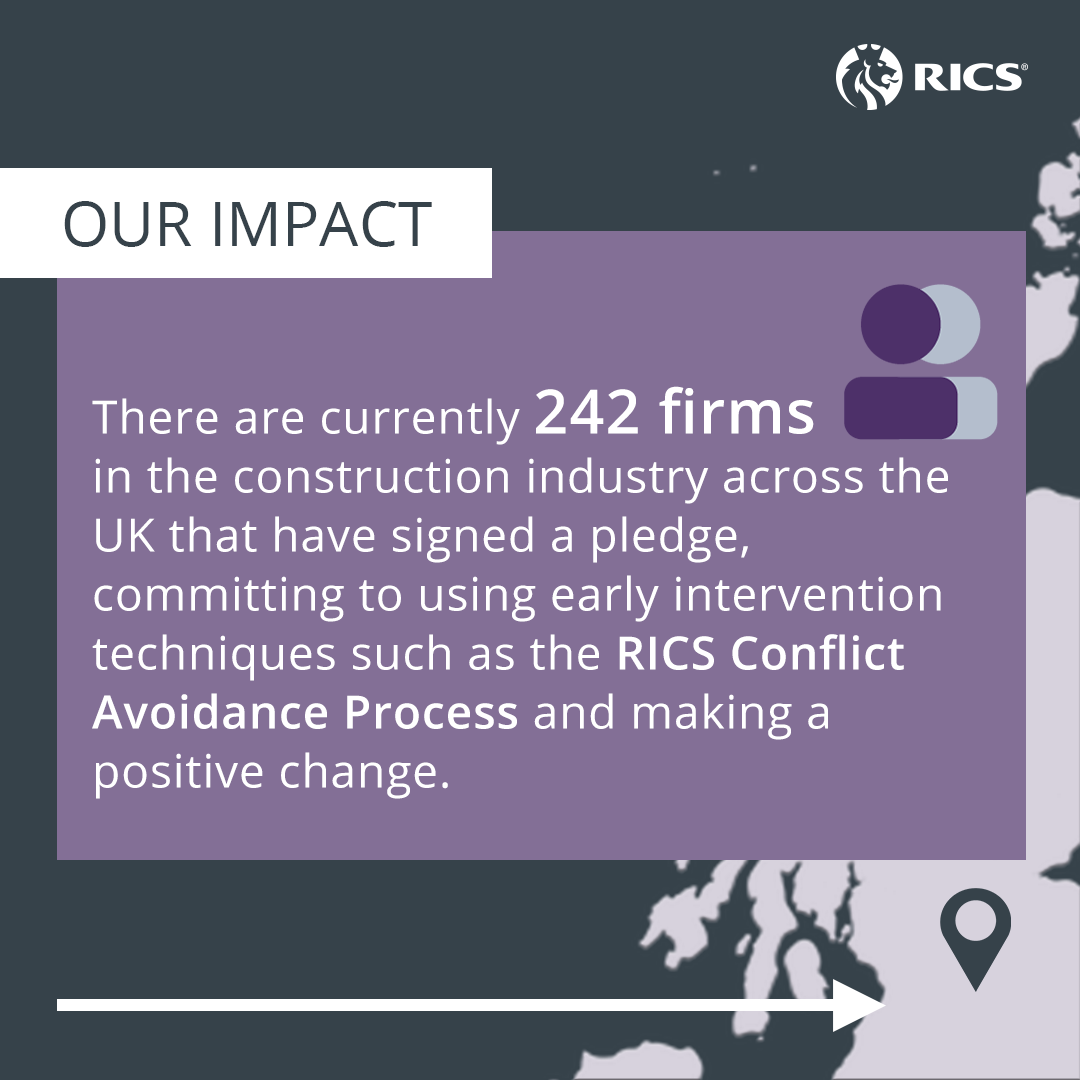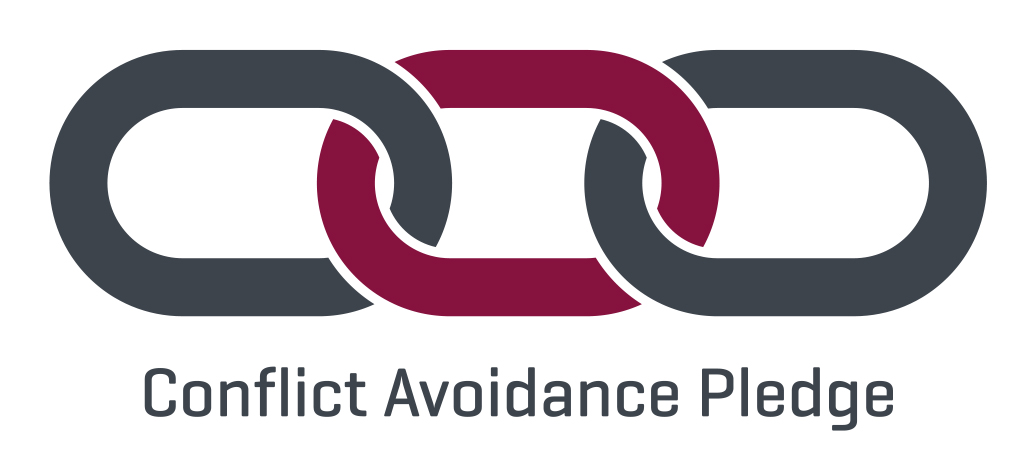
Our global standards
Last year was a strong year for standards adoption with a total of 80 adoptions achieved, reflecting our work in key areas. The pandemic and subsequent economic challenges increased the demand for RICS standards as organisations sought to build back better across the built and natural environment. The aftermath of the Grenfell tragedy in London also created an environment for RICS to step up and show leadership and collaboration to make buildings safer from fires in the future.
The stakeholders who adopted and implemented RICS standards ranged from major governmental and inter-governmental bodies, financial decision-makers, other associations and institutions, insurers, consultancy firms outside the UK and clients, including:
- UK government and devolved nations and ministries within the UK government
- UK Finance and mortgage lenders
- Turner and Townsend, Faithful & Gould, KPMG, Knight Frank, Cushman and Wakefield (all outside the UK)
- Royal Town Planning Institute, Kuwait Real Estate Association, Law Society
- Major Chinese developers including CITIC Heye Investment, Wisdom International Group, Shoukai Monura
Real Estate - United Nations
- Zurich, Royal Sun Alliance, AXIA
- Infrastructure Ontario.
Highlights
Key standards adopted 2020/21
Personal indemnity insurance (PII) minimum terms
The recent challenging insurance market has led to a lack of adequate and affordable PII for RICS members. As a result, a working group of RICS members chaired by Andrew Gooding FRICS, within the remit of the Standards and Regulation Board, was set up for members operating in the UK, to look at the following.
• Review RICS PII requirements and how RICS can best support the development of an adequate, appropriate and sustainable PII market for RICS-regulated firms.
• Identify additional guidance and support that RICS can provide for RICS-regulated firms on obtaining adequate and appropriate indemnity.
• Understand what information consumers and clients require to ensure transparency around RICS-regulated firms’ indemnification arrangements.
• Review how RICS collects and uses data to predict emerging trends in the PII market, as well as better assess and articulate the risk profile of the profession.
Going forward RICS will also review the global situation for PII.
"IFE welcomes the RICS guidance to support valuers in adopting a risk-based approach for valuation assessments. IFE will continue to engage with RICS, the government and lenders to help refine the guidance to ensure ongoing compatibility with other fire safety guidance and legislation."
Peter Wilkinson, Institution of Fire Engineers (IFE)
RICS’ Standards and Regulation Board commissioned an independent review of real estate investment valuation practices in response to structural shifts in investor and occupier demand for real estate, which lead to changing market, public and regulatory expectations of valuers, many accelerated by the impacts of COVID-19. Representatives from governments and professional bodies to valuers, regulators and lenders from key global markets were consulted during the call for evidence from 16 Dec to 31 March 2020, and 43% of the responses received came from outside the UK.
The independent valuation review, chaired by Peter Pereira Gray, will make recommendations to RICS and other relevant bodies on how valuation standards and related support frameworks must evolve to continue delivering confidence.
Read more: The Independent Review of Real Estate Investment Valuations




Influencing the global agenda
Highlights of our standards being adopted in the Middle East and Europe
Regulation
RICS’ Standards and Regulation Board, headed by Dame Janet Paraskeva and launched in 2020, continues to work to maintain public trust and confidence in the profession by adhering to its strategic direction of professionalism in the public interest and in fulfilment of our Royal Charter. We support the profession, underpin client and wider public confidence, and uphold professional standards through our regulatory activities and assurance programme.
In the last year, key elements have been added to our regulatory toolkit, including:
- delivering increased member support visits
- enhancing the annual return process for regulated firms and registered valuers
- creating tailored assurance questionnaires
- adopting digital community platforms
- delivering a range of regulatory webinars and workshops for members and firms
- preparing a proposal for reviewing member post qualification continuing professional development (CPD).
These elements add to our existing model of proactive regulatory review activity and independent-led regulation, through investigating concerns and undertaking enforcement activity where necessary. This is underpinned by RICS’ Rules of conduct, standards, professional statements and guidance, market intelligence and annual monitoring of continuing professional development (CPD) for the duration of membership.














